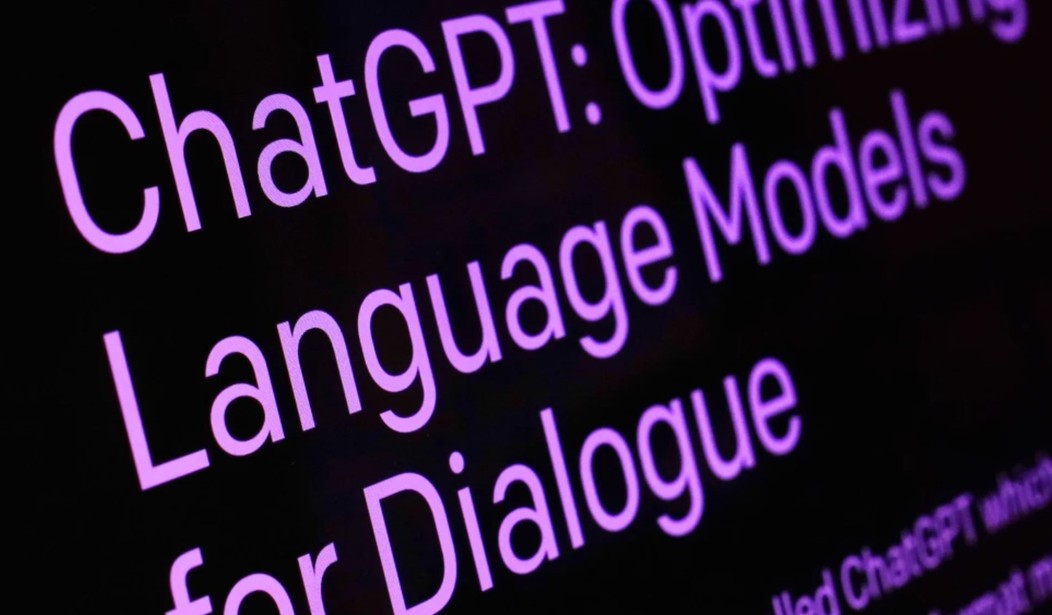Last week I wrote about Jonathan Haidt's update on what has happened in the year since his book The Anxious Generation was published. For the most part, Haidt had a lot of good news to report about parents around the world who seemed to find common ground around some of the ideas he was promoting, specifically that smart phones and social media are creating bad outcomes for a lot of kids and need to be more tightly controlled.
As positive as all of this sounded, there was one thing that had him worried. Just as parents seem to be making moves to deal with the damage caused by screens and social media, AI was hovering on the horizon. And that technology has the potential to scramble childhood even further.
Haidt didn't really go into a lot of detail about his concerns about AI in his piece for the Free Press, but in an interview published today by Ezra Klein, he goes into a lot more detail. After reading some of this, I found myself being thankful that my kids are either young adults or nearly there. Because the AI future really does sound worrisome, not just for individuals but for society as a whole.
They got into this by first talking about prestige and how social media has the ability to hack that natural desire which all humans have. And that brings Haidt to recall a particular AI powered app he sees as a harbinger of things to come. (Ezra Klein's comments are in bold, Haidt's are without bold.)
One of the most disgusting apps I’ve ever seen — well, there is lots of competition. But there’s a thing called Famefy. The idea is that lots of young people are lonely. They’re not able to get followers. They’re putting stuff out there, and nobody is watching.
Well, that’s really crushing. Imagine your 9-year-old not getting any followers.
But if you give her Famefy, Famefy will generate as many followers as you want. You want millions? You got it. And you can see them praising you, giving you hearts...
And these are A.I. followers?
Yes, A.I. followers.
This is the most “Black Mirror” [expletive] I’ve ever heard.
Exactly. And this is why I’m so passionate about how we have to move quickly this year, 2025. This is really our last year before A.I. really has a big impact on life.
And that leads to a discussion of AI powered digital friends and how that could turn into a very dark path for a lot of kids.
I actually think about relationships the most. I’ve said this many times before: I’m a believer in transformational artificial intelligence. I think it’s coming very fast. If you ask me whether I think A.I. will spur economic supergrowth anytime soon, I would say no. I think A.I. is going to be more evident in its upheaval of relationships.
Because our economy has all kinds of friction in it. It’s very hard to rebuild firms around A.I. But what about when you can have any kind of digital friend you want — or, for that matter, digital lover?...
And I think the friction of relationships between human beings is really important. As a person, it’s good for me that my wife does not adapt herself into whatever I want her to say. It is part of being a healthy human being that other people exist with friction to you.
I was a very lonely kid. I did not have many friends. What if I had a lot of A.I. friends and that began to pattern my expectations of other human beings? And then when other people did not fulfill those expectations that was a frustration to me? And it made my A.I. community that much more alluring?
One interesting part of this discussion is the way in which both Klein and Haidt, both of whom are secular, keep returning to faith communities as a limit on this kind of thing. For instance, here's Chait's response to Klein's statement above.
I’ll draw on a really insightful analysis from a Christian writer, Andy Crouch. I did a session with him at N.Y.U. We had a conversation mostly on Chapter 8 of “The Anxious Generation,” which was about spirituality.
And Crouch said something so powerful that I always bring up, because it’s so helpful. He said: What is magic? Magic is an instant, effortless effect on the world.
You know: Snap your finger, something appears. It’s always been the human dream. And technology is essentially magic. Technology allows us to do things. You want a car to come pick you up, press a button — hey, here’s this car. So the technology is magic.
And he says: Now let’s look at how children are formed. How do you get an adult?
And again, he’s coming from a Christian perspective, so they care a lot about the moral formation, the religious formation of their children.
He says: The three areas of formation for children are home, school and church — or any religious organization. Those are the three areas. And all three of those areas are now colonized by tech.
The gist of this is really something all conservatives believe: There is no such thing as a free lunch. When it comes to children, there are no shortcuts for turning them into mature, responsible adults. They must engage in real challenges in the real world to get there. They must face setbacks and learn to overcome them. And only then can they feel the real pride of having some success they earned for themselves by making good choices, by being diligent, by overcoming adversity and challenges from other people. The good life and the challenging life really can't be separated from one another in this universe.
But if we have machines that can do not only some of the physical work but also the mental and social work too, things change, or at least appear to change. If there are AI bots and AI friends, this is going to potentially be a seductive fantasy for a lot of kids, one that is feels better and easier than real life. It's a shortcut to getting some of the things you want in the same way that drugs are a shortcut to feeling the way many people want to feel.
But of course the old saying about a free lunch is still true. There's no payoff down that road packed with AI shortcuts, AI followers and AI friends. You aren't really getting success and achievement, just a simulacrum of those things, one that makes you less prepared and adjusted for life in the real world.
But just as with drugs, a certain number of young people aren't going to heed the warnings and are just going to go with what feels good in the moment. The argument Haidt is making is that adults who see what's coming need to stop that future from ruining young lives before they even get acclimated to the real world.








Join the conversation as a VIP Member